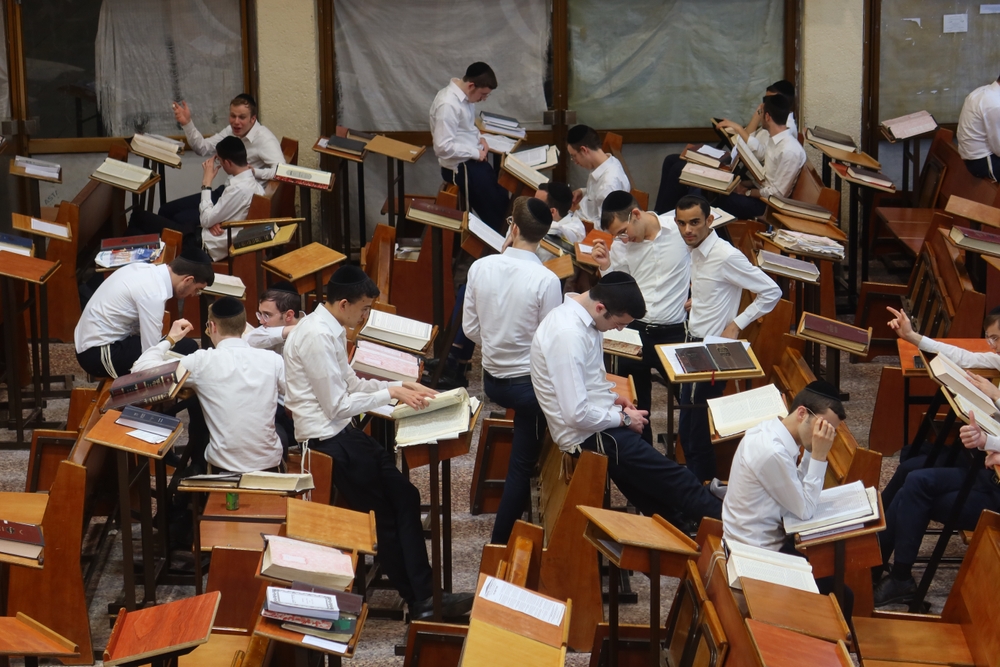Why Mourn a 2,000-Year-Old Loss?
Tisha B’Av is a day which commemorates the destruction of the Holy Temple and is reserved as a day of mourning.
Why do we continue to mourn something which took place thousands of years ago?
Shouldn’t our focus be on building the future instead of bemoaning the loss of that which is long gone?
Mourning as a Blueprint for Rebuilding
The truth of the matter is, that by mourning that which we are missing, we are building the future.
As our Sages have taught us (Ta’anit 30b) “All those who mourn over [the destruction of the Holy Temple which was located in] Jerusalem will be granted the fortune of seeing its restoration,” based on the verse (Isaiah 66:10) “Rejoice with her (Jerusalem) all who mourn her.”
The Shelah (Masechet Ta’anit, Me’inyan Ha’avodah) comments on this and says, “The mourning eradicates the destruction and this action causes the rebuilding [of the Holy Temple], because by mourning we cause Jerusalem to be noted [in Heaven] favorably.”
Mourning over the destruction of the Holy Temple is more than just a sign of respect.
Appreciating the loss serves an essential constructive purpose as a means of recovering our loss!
Life’s Purpose Beyond This World
In order to appreciate our loss, we need to examine what life in this world is all about.
The Mesilat Yesharim (chapter 1) writes as follows:
“And you will see truly, that no mindful person can possibly believe that the purpose of creating man is for his situation in this world.
What is life in this world [alone] already?
Who is it that is completely happy and satisfied in this world?
We live for seventy or maybe eighty years, and most of them are full of hard work and emptiness, along with pain, suffering, and worries.
And after all that comes death, without even fulfilling one thousandth of one’s desires…
Furthermore, if the purpose of creating man was for life in this world, we wouldn’t need to have such an important and elevated soul that is greater than angels…
But rather, creation of man was for his existence in the Next World, and for this he was given this soul, for [only] it is fit to serve [God], and with it a person can reap reward in the proper place and time…
We learn from here, that the main reason for man’s existence in this world is to fulfill mitzvot (God’s commandments), to serve and to withstand challenges… to get ever closer to the Almighty and to break through all the barriers standing between him and his Creator…
For this is the only purpose for which we have been brought into this world.”
Yosef Meshisa: One Moment in the Temple
At the time of the destruction of the Holy Temple, the enemy soldiers were too scared at first to enter the Holy Temple, so they sent a Jew named Yosef Meshisa to enter before them.
They promised him that he could keep whatever item he brought out.
This man had betrayed the Jewish faith, and he arrogantly marched in and strode out with the holy menorah (a huge golden candelabra) in his hand.
Upon seeing this, they said, “This item is not fit to be used by an ordinary person. Go back once more and take something else.”
But this time Yosef did not agree.
They tried convincing him, but he didn’t budge.
They started torturing him, yet he did not relent.
The only thing he said was, “Woe to me for angering my Creator. It’s enough that I did it already once, I shall not do it again.” (See Bereishit Rabbah 65:22.)
The obvious question is, how did this defiant man, all of the sudden, become so respectful of God to the point that he would rather be tortured as long as not to upset God again?
Rabbi Yosef Shlomo Kahaneman answers that the holiness which resided in the Holy Temple was so intense, that one moment of going inside had such a powerful spiritual influence on a sinner that it inspired him deeply to repent.
When the Holy Temple was standing, there was such an evident presence of God in this world that one would have to stubbornly ignore the obvious in order to forsake the true meaning in life.
Anyone who entered the Holy Temple was overwhelmed with inspiration.
The Holy Temple served as a catalyst of spiritual growth and greatness for the Jewish people, the extent of which we can’t even imagine.
What We Lack Today—And How to Respond
This is what we lost.
This is what we are crying about.
We lost a large chunk of that which life is all about.
The Holy Temple served as a center of God’s presence in this world, and imbued us with high levels of spiritual life, a life of constantly growing closer to God.
While no one likes being sad, we must realize that this is a constructive and sacred task which we have at hand.
Each according to his own level should contemplate his personal loss of spirituality.
We should try to imagine ourselves being more spiritual, beyond that which is in our capabilities in our current state, and long to be ever closer to our Creator.
Tisha B’Av 2025 By Rabbi Yitzchok Aryeh Strimber


